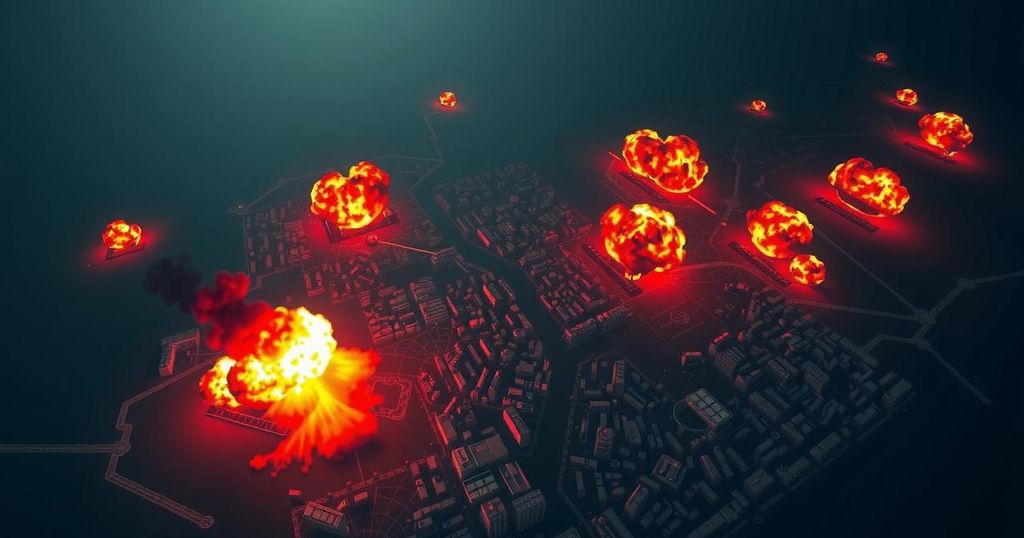Israel’s military targeted locations in Tehran, Iran, on January 1, in response to ongoing attacks from Iran. Explosions attributed to Israeli strikes were also reported in Syria and Iraq, indicating a multi-nation conflict involving Palestine and Lebanon, raising significant humanitarian concerns. U.S. officials were informed of the attacks, while peace advocates urged for non-involvement and dialogue to prevent escalation.
On Saturday, the Israeli military conducted attacks on targets in Tehran, Iran, amidst ongoing military operations in Gaza and Lebanon. The strikes targeted Iranian assets and militias supported by Tehran, including locations near notable sites such as the Imam Khomeini International Airport and various neighborhoods in Tehran. The Israel Defense Forces (IDF) spokesperson Rear Adm. Daniel Hagari stated that these actions were in direct response to persistent attacks from Iranian forces against Israel since October 7th, asserting Israel’s right to self-defense. Meanwhile, explosions attributed to Israeli strikes were reported across Syria and Iraq, indicating a broader conflict across five nations: Palestine, Lebanon, Iran, Syria, and Iraq. This situation has resulted in a significant humanitarian crisis, with casualty figures in Palestine exceeding 153,000 and over 1.2 million people displaced in Lebanon due to ongoing Israeli military actions. U.S. officials have acknowledged being informed of the attacks. Organizations advocating for peace in the U.S. have expressed serious concerns regarding the risks of escalation, urging the U.S. government to refrain from involvement and suggesting that it should support peace talks to prevent further conflict. The consequences of these heightened military actions have raised alarms about a potential wider regional conflict, intertwined with the U.S. political landscape, particularly with references to the upcoming elections. As public discourse around this conflict intensifies, many voices are advocating for a humanitarian approach, emphasizing the need for dialogue and ceasefires across the affected regions. Meanwhile, Common Dreams continues its advocacy for independent, progressive journalism, underscoring the imperative for a media landscape that prioritizes truth and serves the interests of the public at large rather than corporate or political agendas.
The ongoing conflict between Israel and Iran has escalated, with the recent Israeli military strikes in Tehran marking a significant intensification of hostilities. Following Israel’s military actions in Gaza, Lebanon, and surrounding regions, Iran has responded with missile threats. The backdrop includes a complex geopolitical landscape characterized by alliances and tensions among various Middle Eastern states, significantly impacting civilian populations. Reports indicate that Israeli operations have resulted in substantial casualties and widespread displacement across conflict zones. The role of U.S. foreign policy also plays a critical part in the narrative, as calls for non-involvement in the region grow louder, juxtaposed against the historical context of military aid to Israel.
In summary, the recent Israeli military strikes on Iran reflect a significant escalation in the conflict which now spans multiple nations, including Syria and Iraq. This complex situation poses profound humanitarian challenges and raises serious concerns about the potential for broader military conflict. Peace organizations in the U.S. advocate for a cessation of hostilities and engagement in diplomatic dialogue to resolve these tensions, cautioning against the traditional military response facilitated by U.S. involvement. The future stability of the region hinges on a shift towards peace and dialogue rather than continued escalations in violence.
Original Source: www.commondreams.org







